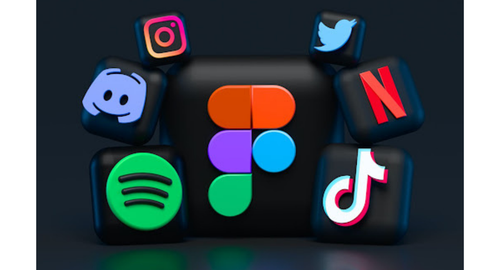
How employers can use social media to connect with Gen-Z
Who are Gen Z and how to connect with them
Gen-Z are often characterised by perseverance, hard work and a desire to make a positive impact in the world. These are excellent qualities to exhibit in the workplace, ensuring that many of this generation’s cohort are highly sought after by employers. With Gen-Z as the first true digital natives, and with 88% of 16-24 year olds having profiles on social media platforms, the most efficient way for employers to connect with them is through the effective use of social media.
Those on the younger end of this cohort, make up a large percentage of users of some of the most popular social media platforms. Over one third (36%) of Instagram users are between 15 and 25 and over a quarter of TikTok users are smartphone users between the ages of 18 and 24. Therefore, using the social media platforms most popular with students and producing relevant content is critical to engaging with them. It's helpful to build a recognisable and familiar brand, while remaining transparent and honest in your approach. Also important is remaining original and authentic, and not simply following the latest trends.
In this blog we explore the steps that employers can take to connect with Gen-Z via social media.
Most popular social media platforms
It's just as important to produce effective and vibrant content as it is to share it on the most popular social media platforms.
One app that has seen an explosion in usage, particularly during the pandemic, is TikTok, which had 8.9 million active users in the UK in January 2022. In the last quarter of 2020, 24% of TikTok users were between the ages of 15 and 25. These numbers suggest that the relatively new app is a great platform for connecting with Gen-Z. Despite the growth and clear popularity of TikTok among its young user group, this is a platform that has not taken off in the same way with organisations and employers, but they may just be missing a trick.
TikTok originally came into view by broadcasting ‘reels’ done by influencers and everyday folk alike; showing off their skills around the latest trends in music and dance. In recent months and years however, the platform has been used to highlight many disasters and movements happening around the world, increasing its content around public affairs and political opinions. In the US, TikTok have now gone as far as to launch a job platform, partnering with over 40 brands that are actively recruiting for a range of roles. Applicants will be invited to submit a short video as the first step in the recruitment process.

Instagram is also still extremely popular with young people. At the end of 2021 the platform had 28.4 million users in the UK, with the second largest share of users being between 18 and 24 years old.
Regardless of which social media accounts employers are using to engage young talent, employers should consider how they can sign-post audiences to their channels through their website, email signatures and other social media platforms.
Soaring to the top in terms of popularity amongst Gen-Z is YouTube. In 2020, YouTube surpassed Facebook, WhatsApp, Instagram and Twitter by number of active users. It also had the highest reach among users aged 15 to 25, with 82 percent of this demographic group using the network. Social media users are no longer content with just flicking through pictures online, like they were in the early days of Facebook. Identifying this, YouTube has revolutionised the way in which young people stream their favourite videos online.
First impressions count
It’s important to remember that when it comes to attracting young talent, first impressions are everything. The ability to build a clear brand identity, on whichever platform you choose to connect with young people on, will determine the response that you get from your targeted audience. It’s a simple fact that people respond to people and so this means being as human as possible and having a friendly, relatable ‘personality’. Your company needs to be regularly sharing content, making sure that posts are positive and engaging, and keeping the voice, tone and image of your brand consistent.
It’s also important to get creative when building a brand to attract early talent on social media. Sure, you want to be sharing information about application due dates and recruitment events, but social media is also a great way to shed light on your company’s culture. Think ‘intern take over day’ or ‘a day in the life of’, where potential hires can gain valuable insight into what it’s like to work for you at various levels in your organisation.
With the amount of time spent on YouTube, it’s clear to say that Gen-Z love videos. Therefore, when it comes to displaying who you are as an employer, consider using imagery and videos rather than large chunks of text whenever and wherever possible. Gen-Z is an audience who have a desire to be constantly stimulated, while being characterised as having short attention spans.

Keeping it real
Studies go on to show that a core element that unites Gen-Zers is their search for truth. Transparency and honesty are particularly important to this generation, who value individuality, meaning that companies need to rethink how they levy attraction to roles they may be hiring for. By being honest about who your company is and what you stand for from the early stages of recruitment, the tone is set as to what new recruits can expect from a relationship with you as an employer. Being honest about ethics, values and morals takes away any feelings of uncertainty, cementing trust in future young employees who see themselves as a good fit for the company and culture.
Hearing from role models from similar backgrounds was a response that 30% of our student database here at Uptree felt strongly about too. Along with meeting a diverse range of people, feeling as though they are entering a workplace that is representative of them is something that is echoed as being important by Gen-Zers time and time again.
Contact the Uptree team today to discuss how we could connect you with our student network to support your Early Careers outreach.
By Uptree
Published on:
Wed 23 Mar 2022